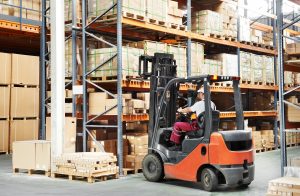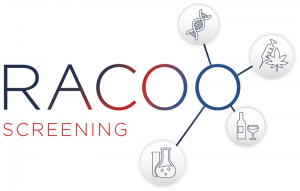Logistics and warehouse drug & alcohol testing
Ensure a safe and compliant warehouse environment with tailored drug and alcohol testing.
65%
of on-the-job accidents are related to substance abuse [1].
Drug use has been shown to affect the logistics sector through lost productivity, workplace accidents and injuries, employee absenteeism, low morale, and increased illness [1].
All of this can cause your warehouse & logistics firm to experience:
- Reduced safety: Substance use can reduce coordination, which could increase the risk of accidents while operating your heavy machinery like forklifts.
- Reduced productivity: Employees who are struggling with substance use disorders may miss work or be less productive while at work, which can impact the overall productivity of your warehouse.
- Reputational damage: As an employer, you have a legal duty to protect your employees’ health, safety, and welfare, and failure to do so could result in legal action.
- Legal & financial consequences: Incidents resulting from substance abuse could result in bad PR, legal challenges and a struggle to attract and retain staff.
Whether you’re an HR manager in the logistics sector or oversee warehouse operations, using Racoo’s expertise in drug and alcohol testing can help you identify and address potential issues before they escalate.
Implement warehouse drug testing to foster a safe and compliant working environment

Create a safe warehouse environment
Regular drug and alcohol tests can deter employees from substance misuse, reducing the risk of accidents and ensuring the safety of all staff.

Keep your operations efficient
By ensuring that employees are not under the influence of drugs or alcohol, you can maintain high levels of safety and efficiency, protecting your company from productivity downturns and legal and PR risks.


Uphold your workplace policies
Racoo’s fully managed drug and alcohol screening service can be tailored to your company’s policies, ensuring compliance without the hassle of managing the testing process in-house.
How can warehouse drug testing benefit your logistics operations?
As an employer, you have a legal duty to protect your employees’ health, safety, and welfare.
Working in the warehouse & logistics sector, with many potential workplace hazards, you may choose to add a testing for drugs policy to ensure that employees are not under the influence of drugs while operating heavy machinery like forklifts.
Warehouse drug and alcohol testing involves screening employees for substance misuse.
Tests can be conducted post-accident, based on suspicions, or as part of a routine preventive program.
Racoo Screening offers various testing methods, including urine tests, saliva drug tests, and more. Our tests can detect a range of substances, from illegal drugs to prescription medications.
-
Fully managed service: Let us handle the testing procedures, so you can focus on core operations.
- Customised to your needs: We offer solutions tailored to the unique challenges of the logistics sector.
- Legal and ethical testing: Ensure health and safety at work while adhering to data protection and other legal standards.
Why Racoo?
FAQs
About drug testing in warehouses and logistics
Yes, employers can conduct random drug and alcohol tests, especially if there’s a suspected issue. However, it’s essential to ensure that testing procedures adhere to data protection and other legal standards.
Saliva drug tests can detect various substances, from recreational drugs to certain prescription medications.
The HSE outlines 7 steps to consider taking if your company discovers an employee is under the influence of substances [2]:
- Understand your legal duties to protect your employee
- Chat with your employee to understand their perspective
- Assess your safety-critical workers and decide if your need an accident investigation
- Evaluate your drugs policy to ensure it’s understood and watertight
- Give support through education, resources and counselling options
- Decide if your employee will face disciplinary action
- Review your policy in terms of the current UK law.
For safety and efficiency, it’s vital to ensure warehouse staff aren’t impaired. Drug and alcohol misuse can lead to accidents, affecting operations and risking lives [2].
Urine tests, being accurate and affordable, are the most common type of test in the warehouse & Facilities sector [3].
Urine Test Detects recent and past drug use. Ideal for random tests due to its non-invasive nature and cost-effectiveness.
Saliva Test Identifies recent drug intake. Quick, hygienic, and suitable for on-site testing, ensuring immediate results.
Hair Test Reveals long-term drug history. Provides a comprehensive overview of up to 90 days, highlighting patterns of misuse.
Breath Test Specifically measures alcohol levels. Instant results make it ideal for on-the-spot checks, ensuring immediate safety.
Blood Test Most accurate for current intoxication although not often used by employers. Though invasive, it provides a precise snapshot of substances in one’s system at the time of testing.
Racoo’s drug screening tests are highly accurate and accredited inline with UK ISO standards. False positives, though rare, can occur due to certain medications or foods.
How can my company implement random drug testing without infringing on employees’ rights or privacy?
The HSE (Health & Safety Executive) recommends you follow a clear policy, gain consent, and maintain confidentiality. Always follow UK data protection and employment laws [2].
Typically, you’ll arrange a confirmatory test. If the result comes back positive, your company may arrange help for your employee, such as counselling, or enact disciplinary measures, based on company policy [4].
Yes, testing your employees is legal but not mandatory. Your company should consider UK employment rights, data protection, and health and safety regulations. Always seek legal advice before conducting testing on your employees [5].
It’s up to you how often you test. Some companies test one a month, others may test twice year. Your testing frequency will depend on:
- Your company policy
- The number of safety-critical roles in your workplace
- Whether you suspect substance misuse
Random tests can be more effective as a deterrent, but scheduling can ensure regularity.
Tests detect illegal drugs, alcohol, and some prescription medications. Specifics vary by test type.
Inform employees to declare prescriptions beforehand. A medical review officer can then assess any positive results for valid medical reasons [6].
Racoo offers bespoke solutions, training, and full support tailored to your company’s unique needs, ensuring effective and compliant testing.
The most common type is the urine test, known for its accuracy and affordability. Racoo offers drug testing kits for warehouses using both urine and saliva samples.
references
[1] www.pelagohealth.com Workplace Safety: The connection between On-the-Job Accidents and Addiction
[2] www.hse.gov.uk Managing drug and alcohol misuse at work[3] www.ewdts.org European Guidelines for Workplace Drug Testing in Urine
[4] www.acas.org.uk Alcohol and drugs policies
[5] www.legislation.gov.uk Data Protection Act 2018
[6] www.nhs.uk Medicines A to Z





